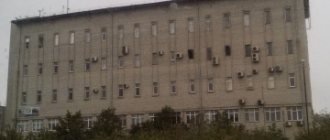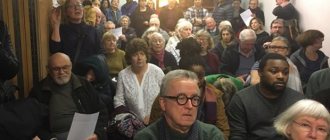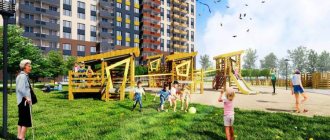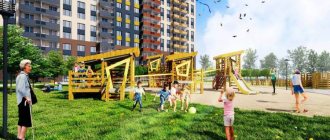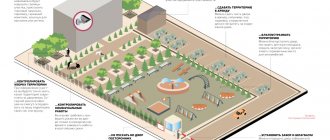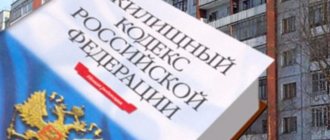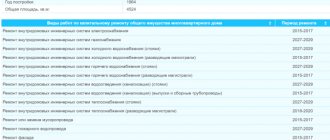Pravozhil.com > Housing and communal services issues > Homeowners' associations > Voting of apartment building owners - vote counting
In accordance with the Housing Code of the Russian Federation (LC RF), the owners of an apartment building must organize general meetings to resolve issues relating to their properties, conduct voting and correctly count votes.
Decisions at such meetings are often of a very important nature and therefore must be made through a fair voting procedure.
Poor awareness of citizens in the legislation of the Russian Federation often provokes incorrect vote counting or makes this event completely impossible.
In order to help readers, today our resource offers material on how to properly conduct the procedure for counting votes and the meeting as a whole.
Legislator on meetings of residents of apartment buildings
Legislation on self-government in an apartment building
The general meeting of owners of an apartment building is a fairly important event, first of all, for the residents themselves.
The general essence of such fees is clear to almost anyone. However, when considering the topic in more detail, it is important to use the concepts that the legislator uses in legal acts.
As noted earlier, the topic we are considering is fully regulated by the Housing Code of the Russian Federation. Summarizing the information from this legislative act, we can identify the basic concepts on today's issue.
Our resource went through this procedure and generated the following list of definitions that are extremely important to consider for the understanding of the essence of the phenomenon being considered today:
- An apartment building (MKD) is a residential building that includes two types of territories: private property of the residents of this building (individual apartments) and common property distributed among all residents of this building and under their supervision (entrances, elevators, access areas and etc.).
- The General Meeting of Owners (GMS) is an organized meeting of all residents of an apartment building or the majority of them, aimed at resolving all issues related to the maintenance of their common property.
- Voting is the only form of decision-making at the OSS, the procedure for which is regulated by the legislation of the Russian Federation and cannot be violated.
Now that the essence of the issue under consideration is more or less clear to everyone, we can begin to analyze it in more detail.
First of all, we note that the Housing Code of the Russian Federation vests the OSS with a number of basic powers. More precisely, the following:
- choice of control method for MKD;
- choosing a management company (if the residents of the house have no desire to independently monitor the common property);
- approval of tariffs for organizing the repair of common properties and their maintenance;
- making decisions regarding the start of major repairs;
- resolving a number of issues that are in one way or another related to the use, maintenance and management of the common property of apartment building residents.
Voting at the OSS on a specific issue is subject to a number of conditions, which will be discussed below. It is worth noting here that legally adopted decisions at the meeting are obligated to be carried out by absolutely all residents of the apartment building, regardless of whether they took part in the voting or not and whether their position coincides with the opinion of the majority or not.
Voting procedure and rules
Voting in an apartment building - how to count votes?
After we have understood the essence of the general meeting of residents of the house, we can study in more detail the procedural side of voting at such meetings.
In the legislation of the Russian Federation, the voting procedure is considered in sufficient detail. But it can not be understood by every citizen of our country, since the interpretation of all concepts is carried out in a “legal language” incomprehensible to the average person.
In fact, the essence and general principles of voting at the OSS are extremely simple and easy to understand. To make it easier to understand the meeting procedure, we will provide the following information:
- Firstly, a meeting of residents can be carried out in three forms:
- in-person gathering, that is, a meeting in the direct presence of all residents of the apartment building;
- absentee collection, that is, a meeting at which decisions are made in writing by each resident of the apartment building;
- in-person collection, that is, a meeting at which decisions are made in the manner of both in-person and absentee collection.
All types of OSS are absolutely legal and competent. The main thing is that during their implementation the basic norms of this procedure are observed.
- Secondly, when organizing a meeting and subsequent voting, it is important to maintain a quorum, that is, a certain number of residents taking part in the meeting and directly voting. According to current laws, the quorum at the OSS is determined by the area of housing. In accordance with the Housing Code of the Russian Federation, a quorum is considered to be met if the owners of more than 50% of the residential area of the apartment building are present at the meeting. Otherwise, it is impossible to conduct the OSS and, accordingly, voting.
Voting of apartment building owners - vote counting
How are votes of owners counted at a meeting?
Special attention in the procedure for the general meeting of owners of an apartment building requires, of course, the calculation of the results obtained.
The procedure for counting votes is quite simple if you look at its basic principles. The general list of these is as follows:
- The counting of votes received when residents vote at the OSS is carried out directly using the compiled register and its data. According to the generally accepted norm, 1 square meter of property of each voter is taken as one vote. That is, if the owner, say Mikhail, individually owns (or jointly with his wife) an apartment of 75 square meters and voted at the meeting, then on his behalf the same 75 votes are counted in the general list of such votes. And, for example, another tenant, Irina, owns an apartment of 40 square meters together with her ex-husband on the basis of shared ownership in equal parts, then in this case, Irina’s votes are considered to be that part of the footage of her property in the apartment building that is in her official possession , that is, 20 square meters.
- During the voting process, apartment building residents have the right to vote either to resolve the issue that has arisen, or to ignore it, or to keep their vote to themselves altogether. Thus, when counting votes, three basic units are taken into account: “FOR”, “Against” and “Abstained”.
- As a rule, the initiator of this event is responsible for counting the votes received in voting at the OSS. The counting of votes at the general meeting of owners of apartment buildings is carried out according to a formula. The final decision is made based on the majority of votes received during the voting, taking into account those residents who participated in it. For example, the owners of 3,000 square meters gathered at the OSS MKD with an area of 4,500 square meters. Residents who own a total area of 2,200 square meters voted to resolve the issue in a specific way. Thus it turns out: (2200 * 100%) / 3000 = 73.3% - residents voted for the solution to the issue, which means it will be accepted as mandatory.
II. Availability of quorum
The general meeting will be considered valid if at least 51% of the areas of apartments or non-residential premises (50%+1) of the given apartment building attended it. Thus, if, for example, 40% of the apartments in a building are not privatized and a representative of the city government voted for them, then for the required quorum, at least the owners of 11% of residential and non-residential premises must also come to the general meeting. If 11% of the area of a given apartment building is occupied, for example, by a store located on the ground floor, the owner of which also came to the general meeting, the event will be considered to have taken place, although only two owners were present. The per capita number of those present does not affect the presence or absence of a quorum, the main thing is how many square meters each person has.
The quorum of the last meeting is calculated using the formula4:
Х = (∑Sk × 100%) : S0
∑ Sk — area of the premises of the owners who came to the general meeting.
S 0 is the total usable area of the premises of an apartment building.
Accordingly, if X > 50, de jure the general meeting of owners took place, if X will have to be organized again.
Nuances of the event
How to count the votes of owners in an apartment building?
Summarizing today's material, our resource decided to present to readers a number of nuances of the voting procedure at the OSS, which were not previously mentioned. All of them are quite important and require mandatory familiarization. The general list of such features is as follows:
- Summarizing the material presented earlier, we can highlight all the stages in conducting OSS, without which the legality of the collection is called into question. The list is:
- The first stage is the preparation of notices of the general meeting addressed to each owner in the apartment building.
- The second stage is holding the meeting itself, either in person, in absentia, or in absentia.
- The third stage is the preparation of the register (minutes) of the meeting and the counting of votes.
The procedure for further consideration of the decision adopted at the meeting of owners of apartment buildings
- The results obtained during voting at the OSS are used to resolve issues that have arisen and copies of them are sent to the management company, and from there to the State Housing Inspectorate. Taking into account these nuances of the procedure, it is important for its initiator to take care of the legality of the activities being carried out, otherwise the collection will be appealed and useless.
- It is worth considering that minors, even if they are the owner of the apartment building, are voted for by their parents.
- It is important to draw up all protocols, notifications and registers of the OSS in the form established by law. This is discussed in more detail in the orders of the Ministry of Construction and Housing and Communal Services.
- Any decision made at the OSS MKD can be challenged in court by persons interested in it. The main thing in this procedure is to have significant evidence indicating the incompetence and illegality of the votes received.
Otherwise, the general meeting of owners has no nuances. We hope that the material presented today answered your questions. Good luck with your OSS!
You can learn more about the types of general meetings of apartment building owners and its participants by watching the video:
See also Telephone numbers for consultation May 17, 2021 kasjanenko 1164
Share this post
Discussion: 8 comments
- Anna says:
08/03/2017 at 15:01We often have such meetings, but as a rule, everything is in a more simplified form than described in the article. Voting is not always unanimous, but we listen to the opinion of the majority; it has not yet come to court proceedings.
Answer
- pavel says:
12/14/2017 at 15:27
Very clear thank you
Answer
- Valentina says:
03/02/2018 at 08:30
In our new building, a meeting was held on the initiative of the owner, who did not notify each owner by letter, but hung a notice in the entrance. In addition, the same notice hung in two other houses. At the indicated time, the owners of 3 houses (that’s more than 700 apartments) were gathered in one room; no more than 100 people were present and voting sheets with agenda items were distributed, which were not discussed. The meeting is considered completed. I complained to the Housing Inspectorate - the answer is that we do not consider it necessary to carry out an inspection because... materials from the OS of owners of apartment buildings containing decisions on similar issues on the agenda have not been received by the Inspectorate for three months and therefore there is no basis for conducting an unscheduled inspection. What to do???
Answer
- Anna A. says:
03/06/2018 at 01:18
I participated in such meetings, but I don’t remember a single decision, because... It is impossible to gather all the owners, and there is simply no responsible person who would want to ensure their attendance.
Answer
- Dudarev Fedor Vladimirovich says:
04/07/2018 at 01:25
Our counting is carried out electronically, and so is voting. This is convenient because the voting results are transparent. In this way, you can do an “open” vote or a “closed” vote.
Answer
- viktor.k says:
03/11/2019 at 20:27
6 entrance, 9 floors. house, in-person and absentee form of meeting, 58 owners are present in person, is it possible to vote by show of hands or, according to Article 48, paragraph 4.1, only by ballots???
Answer
- Lyudmila says:
03/26/2019 at 22:22
apartment house . There is parking 1500m below it. Vote. The board, using a large number of meters of parking (one owner who does not live in our building), pushes through “their questions.” Is it legal for a parking lot to participate in voting? It turns out that the life of a HOME depends on the parking solution...
Answer
- Kristina202031 says:
12/23/2019 at 15:12
Hello... anybody home?? thank you
Answer
Additional Information
This publication is the third and final part of the article, devoted to the nuances of general meetings of premises owners. the first and second were published on the AKATO website . The article analyzes the issues that most often cause difficulties. To explain absolutely all the nuances of conducting OSS, immeasurably more publications will be required; such work can be endless.
In addition, the legislator quite often makes changes to the norms of housing legislation, and many clarifications in this area quickly lose relevance. For example, one of the new federal laws (adopted by the State Duma of the Russian Federation on December 20, 2017, bill 82843-7 ) amends the rules governing the procedure for holding general meetings, in particular, it establishes the obligation to transfer not copies, but originals of OSS protocols to the state housing supervision authorities, and establishes the right to participate in general meetings not only of owners, but also of persons who accepted premises in an apartment building from the developer under a transfer deed. These changes will be analyzed after the relevant regulations come into force.
Additionally, AKATO draws the attention of readers that in honor of the upcoming New Year 2021, all subscribers to AKATO newsletter a special New Year's gift , which is free access to watch the full video recording of the webinar “General Meeting of Premises Owners . Read more about the New Year's gift and the procedure for receiving it at the link > > >
********************************************
Nuances of holding general meetings. Part 1 > > >
Nuances of holding general meetings. Part 2 > > >
Nuances of holding general meetings. Part 4 > > >
Author: Nifontov D.Yu.
Did you like the article?
Subscribe to stay updated on current articles and the most important housing and communal services news.
